Excellent Review of the Advanced Seminar on Clinical Practice Skills of Geriatrics (Phase VI) and the Training Course on Multidisciplinary Outpatient Service Model and Service Standards of Geriatrics of Beijing Health and Health Commission
November 8-10, sponsored by the Chinese Society of Gerontology, Advanced Geriatric Clinical Practice Skills Training Course (6th) organized by the International Exchange and Cooperation Department of the Chinese Geriatric Society, the Second Medical Center of the PLA General Hospital and the National Clinical Medical Research Center for Geriatric Diseases (PLA General Hospital) And Beijing Health Commission "Geriatric multidisciplinary outpatient Service Model and service standard Research" training course was successfully held in the PLA General Hospital in a combination of online and offline.
On the afternoon of November 08, 2020, the topics of sharing were "Improving the ability of interdisciplinary teams in Gerontology"; and "How to improve the vision and skills of building clinical research in gerontology based on real-world evidence";. The lecturers are Director Song Yuetao, Associate Professor Kang Lin, Associate Professor Hu Yixin, Professor Ye Zhenwei, Associate Professor Sun Feng, Associate Professor Liu Miao and Associate Researcher Wu Shanshan. It was moderated by Professor Luo Leiming.
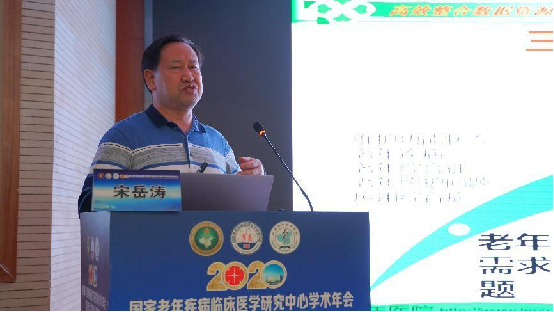 Song Yuetao, Assistant President of Beijing Geriatric Hospital and Director of Science and Technology Department, delivered a speech entitled "Comprehensive Assessment of the Elderly and its Application in Interdisciplinary Team Management". Starting from the characteristics and six needs of elderly diseases, he introduced common clinical syndroms and six problems that need attention in elderly assessment. A typical case was used to introduce how to implement comprehensive assessment of the elderly. How to solve clinical problems and the application of geriatric comprehensive assessment in multidisciplinary team management.
Song Yuetao, Assistant President of Beijing Geriatric Hospital and Director of Science and Technology Department, delivered a speech entitled "Comprehensive Assessment of the Elderly and its Application in Interdisciplinary Team Management". Starting from the characteristics and six needs of elderly diseases, he introduced common clinical syndroms and six problems that need attention in elderly assessment. A typical case was used to introduce how to implement comprehensive assessment of the elderly. How to solve clinical problems and the application of geriatric comprehensive assessment in multidisciplinary team management.
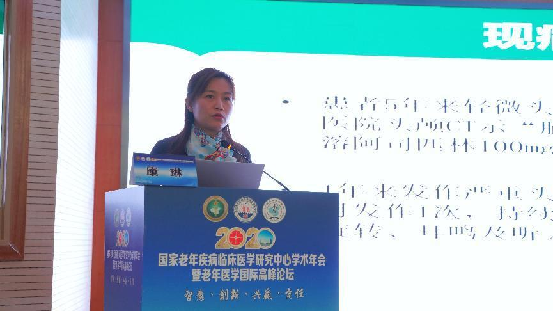 The lecture by Associate Professor Kang Lin of Peking Union Medical College Hospital is entitled ";The role of geriatrics in the interdisciplinary team of Geriatrics and cases". Combining the role of geriatrics in the interdisciplinary team, she analyzes how to apply specific assessment in daily work through specific cases, focusing on improving the quality of life and paying more attention to functional rehabilitation in addition to diseases. There are a lot of new ideas, especially multidisciplinary and interdisciplinary communication, especially the geriatric department needs to have interdisciplinary skills to effectively operate the geriatric team and efficiently solve the problems of patients.
The lecture by Associate Professor Kang Lin of Peking Union Medical College Hospital is entitled ";The role of geriatrics in the interdisciplinary team of Geriatrics and cases". Combining the role of geriatrics in the interdisciplinary team, she analyzes how to apply specific assessment in daily work through specific cases, focusing on improving the quality of life and paying more attention to functional rehabilitation in addition to diseases. There are a lot of new ideas, especially multidisciplinary and interdisciplinary communication, especially the geriatric department needs to have interdisciplinary skills to effectively operate the geriatric team and efficiently solve the problems of patients.
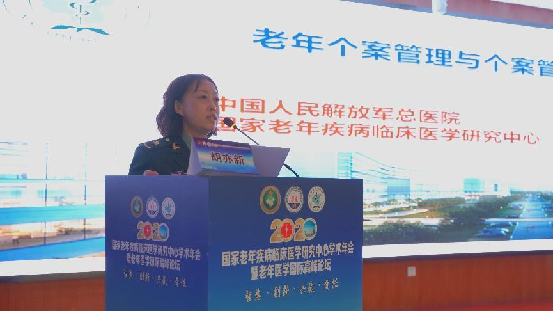 Associate Professor Hu Yixin, director of the International Exchange and Cooperation Department of the Chinese Geriatric Society and the fourth Department of Health Care of the Second Medical Center of the PLA General Hospital, gave a lecture entitled "Elderly Case Management and case Manager". Case managers need to have a certain medical foundation and participate in the health management of the elderly. During hospitalization, help patients understand the condition, assist multidisciplinary diagnosis and treatment, make hospital preparation, education and guidance. After discharge, effectively assess the medical resources of patients in need of health support in the community or nursing institution, and effectively coordinate resources. Case management and case managers play an active role in the continuous medical care of the elderly, which is conducive to resource optimization, saving economic expenditure and reducing social burden.
Associate Professor Hu Yixin, director of the International Exchange and Cooperation Department of the Chinese Geriatric Society and the fourth Department of Health Care of the Second Medical Center of the PLA General Hospital, gave a lecture entitled "Elderly Case Management and case Manager". Case managers need to have a certain medical foundation and participate in the health management of the elderly. During hospitalization, help patients understand the condition, assist multidisciplinary diagnosis and treatment, make hospital preparation, education and guidance. After discharge, effectively assess the medical resources of patients in need of health support in the community or nursing institution, and effectively coordinate resources. Case management and case managers play an active role in the continuous medical care of the elderly, which is conducive to resource optimization, saving economic expenditure and reducing social burden.
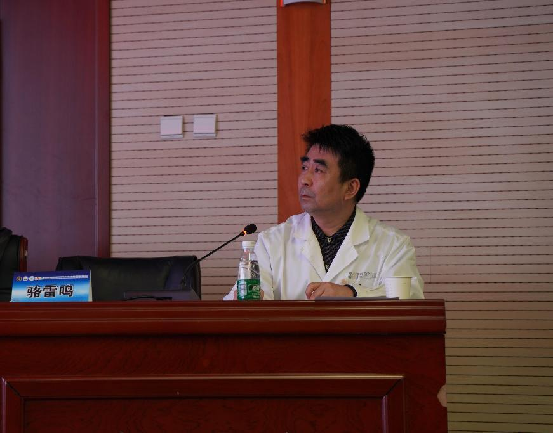
Prof. Luo Leiming, Cardiology Department of the Second Medical Center of the PLA General Hospital, summarized the content of this section. The three speakers carefully prepared to share advanced ideas and practical cases to deepen their understanding of medical problems related to the aging society in today's society. Whether the elderly can get the attention and service of relatives and family society is also a manifestation of social civilization and progress. It is therefore important that we actively participate in disease management for the health of the elderly. In particular, the establishment of interdisciplinary teams in gerontology and the specific clinical applications.
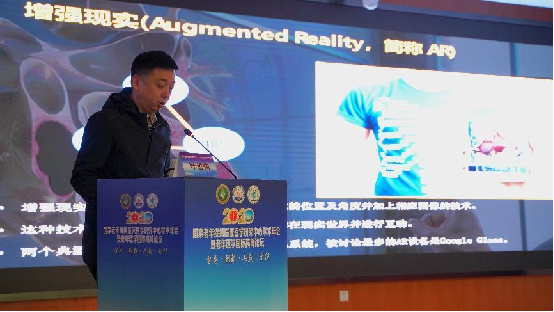 Professor Ye Zhewei of the Department of Orthopedics, Union Hospital Affiliated to Huazhong University of Science and Technology, gave a talk entitled ";The Application Status and Prospect of Mixed Reality in Medicine", sharing new topics and disciplines and introducing mixed reality in medicine.
Professor Ye Zhewei of the Department of Orthopedics, Union Hospital Affiliated to Huazhong University of Science and Technology, gave a talk entitled ";The Application Status and Prospect of Mixed Reality in Medicine", sharing new topics and disciplines and introducing mixed reality in medicine.
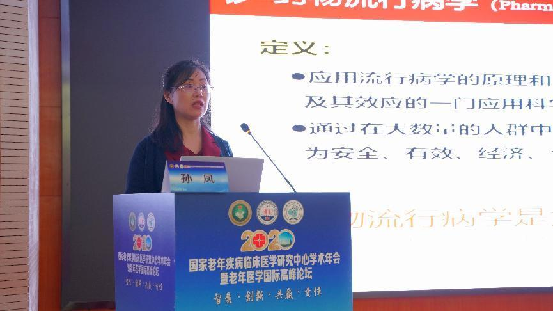 Sun Feng, Associate Professor of the Department of Epidemiology and Health Statistics, Peking University School of Public Health, gave a lecture entitled "How to conduct Real world research and systematic Review", from epidemiology, systematic review to MATA analysis, especially mesh META, which gave us a great insight on how to conduct real world research and systematic review.
Sun Feng, Associate Professor of the Department of Epidemiology and Health Statistics, Peking University School of Public Health, gave a lecture entitled "How to conduct Real world research and systematic Review", from epidemiology, systematic review to MATA analysis, especially mesh META, which gave us a great insight on how to conduct real world research and systematic review.
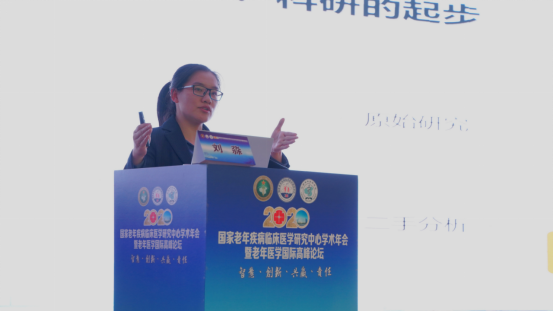 Liu Miao, director General of Epidemiology and Disease Prevention Branch of Chinese Geriatrics Society and Associate Professor of Graduate School of PLA General Hospital, gave a lecture entitled ";Starting from META Analysis for Scientific Research". She explained the steps of META analysis in detail from two perspectives, firstly, how to select the topic of traditional META, combined with several cases.
Liu Miao, director General of Epidemiology and Disease Prevention Branch of Chinese Geriatrics Society and Associate Professor of Graduate School of PLA General Hospital, gave a lecture entitled ";Starting from META Analysis for Scientific Research". She explained the steps of META analysis in detail from two perspectives, firstly, how to select the topic of traditional META, combined with several cases.
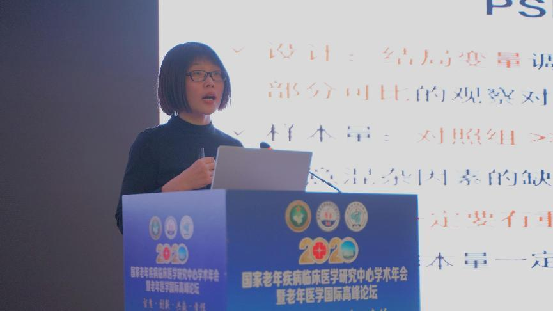
Wu Shanshan, Associate researcher at the National Clinical Research Center for Digestive Diseases, Beijing Friendship Hospital Affiliated to Capital Medical University, gave a talk entitled "Control and treatment of Confounding Factors in Observational Studies".
On November 9, 2020, the second day of the training course began. In the morning, Zhang Li, deputy director of the First Department of Health Care of the Second Medical Center of the PLA General Hospital, and Kang Lin, deputy director of the geriatric Medicine Department of Peking Union Medical College Hospital, co-chaired the special lecture, which mainly focused on the early identification of physical weakness and cognitive weakness of the elderly, and invited three experienced speakers to share with us in turn.
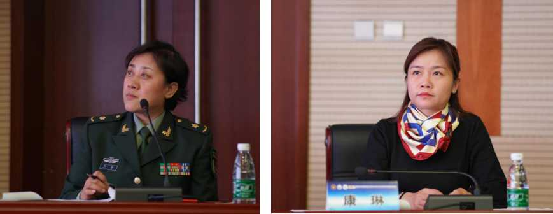 Associate Professor Kang Lin from the Department of Geriatric Medicine of Peking Union Medical College Hospital gave a lecture entitled ";Intrinsic Ability and asthenic sarcopenia in the Elderly", sharing the relationship between the asthenic ability and intrinsic ability in the elderly, as well as the prevention and control process of sarcopenia, and mentioning the importance of exercise and the distribution of nutrition in the integrated treatment strategy of sarcopenia.
Associate Professor Kang Lin from the Department of Geriatric Medicine of Peking Union Medical College Hospital gave a lecture entitled ";Intrinsic Ability and asthenic sarcopenia in the Elderly", sharing the relationship between the asthenic ability and intrinsic ability in the elderly, as well as the prevention and control process of sarcopenia, and mentioning the importance of exercise and the distribution of nutrition in the integrated treatment strategy of sarcopenia.
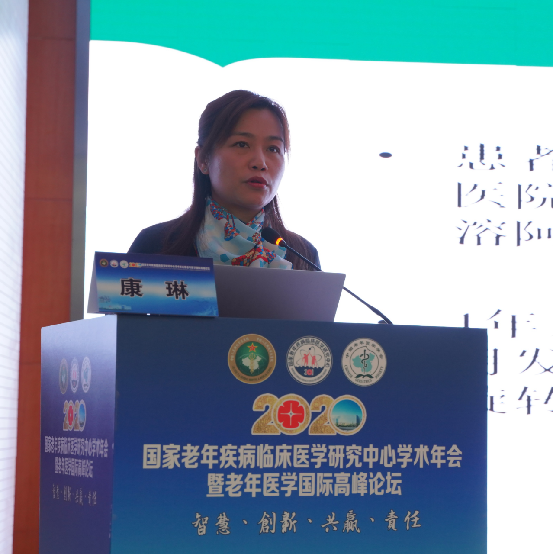
Ma Lina, associate professor of geriatric Medicine, Xuanwu Hospital, Capital Medical University, delivered a lecture entitled "Leveraging the Fulcrum of Healthy Aging -- A Study from frailty to Inner ability". The lecture focused on three aspects: healthy aging, assessment and management of frailty, inner ability and comprehensive care for the elderly, and continued to strengthen from the basic to the clinical stage. With the increase of age, the inner ability of the elderly declines, resulting in weakness and disability. A number of screening tools have emerged. The FSQ scale developed by Xuanwu Hospital of Capital Medical University for Chinese people is worthy of clinical reference and application.
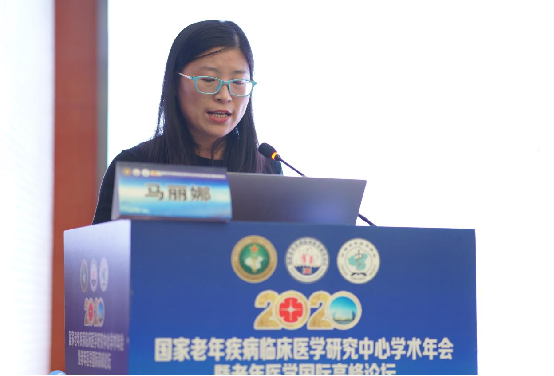 Feng Xue, director of the Cardiac Rehabilitation Center of the National Cardiovascular Center and Fuwai Hospital of the Chinese Academy of Medical Sciences, gave a speech entitled "The Application of posture in the rehabilitation of the elderly organs", which vividly combined theory with practice to describe the influence of posture and posture on the circulatory system, respiratory system and digestive system, and the importance of posture for the rehabilitation of the elderly organs. The live audience benefited greatly.
Feng Xue, director of the Cardiac Rehabilitation Center of the National Cardiovascular Center and Fuwai Hospital of the Chinese Academy of Medical Sciences, gave a speech entitled "The Application of posture in the rehabilitation of the elderly organs", which vividly combined theory with practice to describe the influence of posture and posture on the circulatory system, respiratory system and digestive system, and the importance of posture for the rehabilitation of the elderly organs. The live audience benefited greatly.
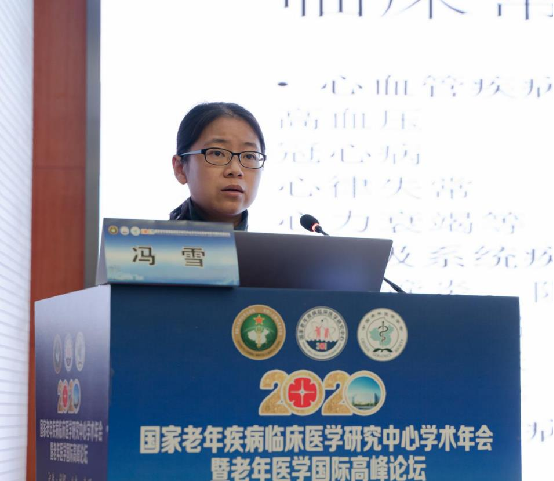
Subsequently, Weng Changshui, vice president of the Rehabilitation Branch of the Chinese Geriatric Society and director of the Rehabilitation Department of the First Medical Center of the PLA General Hospital, presided over a thematic discussion on multidisciplinary intervention and technological innovation on geriatric activity and cognitive dysfunction.
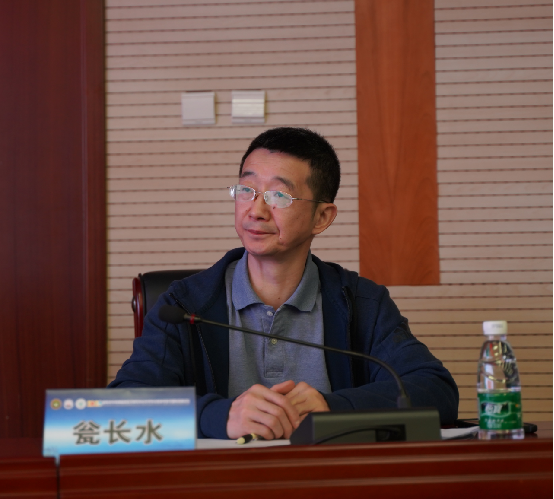
Wang Zhengzhen, professor of sports medicine at Beijing Sport University, gave a lecture entitled "Inspiration from the Physical Activity Guidelines for Americans to improve the inner ability of the elderly through exercise", which combined with the physical activity guidelines for Americans, shared the content of aerobic exercise, resistance training and bone promotion, especially for the improvement of brain cognitive function and the prevention of tumors. The content includes exercise intensity, exercise mode and precautions, etc. At the same time, it is mentioned that exercise prescription is gradually incorporated into the medical system.
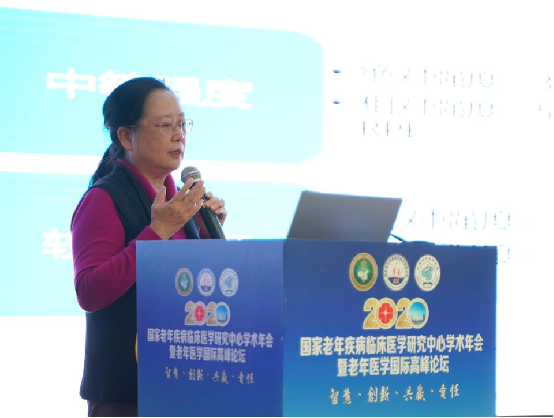 Hu Yixin, director of the International Exchange and Cooperation Department of Chinese Geriatrics Society and deputy director of the Fourth Department of Health Care of the Second Medical Center of Jiefang General Hospital, gave a speech entitled ";Application of Pittsburgh Fatigue Vulnerability Scale in Activity ability Assessment", which introduced the research process of the scale in detail from three aspects: the relationship between PFS and activity ability, the content of PFS, and the verification of PFS in activity ability assessment. Progress and results, sharing the link between fatigue mechanisms and exercise capacity, are further investigated through follow-up studies of physical activity capacity, multidisciplinary teams and outpatient building.
Hu Yixin, director of the International Exchange and Cooperation Department of Chinese Geriatrics Society and deputy director of the Fourth Department of Health Care of the Second Medical Center of Jiefang General Hospital, gave a speech entitled ";Application of Pittsburgh Fatigue Vulnerability Scale in Activity ability Assessment", which introduced the research process of the scale in detail from three aspects: the relationship between PFS and activity ability, the content of PFS, and the verification of PFS in activity ability assessment. Progress and results, sharing the link between fatigue mechanisms and exercise capacity, are further investigated through follow-up studies of physical activity capacity, multidisciplinary teams and outpatient building.
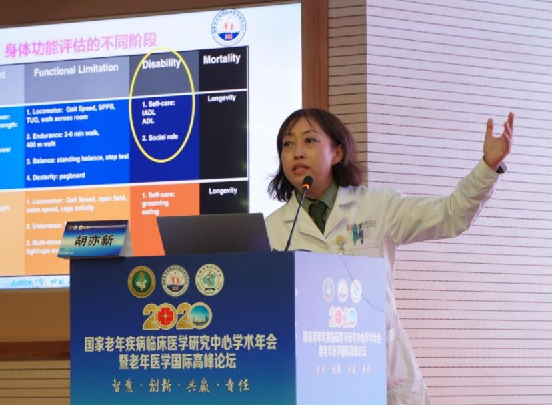 Director Weng Changshui summarized the teaching content of Professor Wang Yuzhen and Deputy Chief physician Hu Yixin. Exercise intervention can improve the cognitive function of the elderly. At the same time, he emphasized the importance of multi-disciplinary combination.
Director Weng Changshui summarized the teaching content of Professor Wang Yuzhen and Deputy Chief physician Hu Yixin. Exercise intervention can improve the cognitive function of the elderly. At the same time, he emphasized the importance of multi-disciplinary combination.
The lecture by Professor Wang Wei, Department of Neurology, Second Medical Center of PLA General Hospital, was entitled "Application of Neuropsychological Scale in Dementia diagnosis", sharing related concepts of dementia, diagnostic ideas, application purpose of scale in dementia diagnosis and selection of assessment scale, sharing advantages and disadvantages of clinical application of scale and on-site practice.
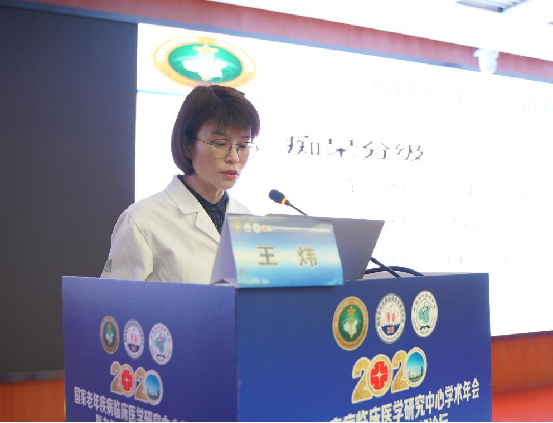 Sun Xinyu, director of the geriatric Department of Peking University Sixth Hospital, gave a lecture entitled ";Multidimensional Understanding of delirium", sharing the relevant concepts and clinical experience of delirium, and mentioning that the incidence of clinical delirium in the geriatric department is more than 10%, which deserves attention.
Sun Xinyu, director of the geriatric Department of Peking University Sixth Hospital, gave a lecture entitled ";Multidimensional Understanding of delirium", sharing the relevant concepts and clinical experience of delirium, and mentioning that the incidence of clinical delirium in the geriatric department is more than 10%, which deserves attention.
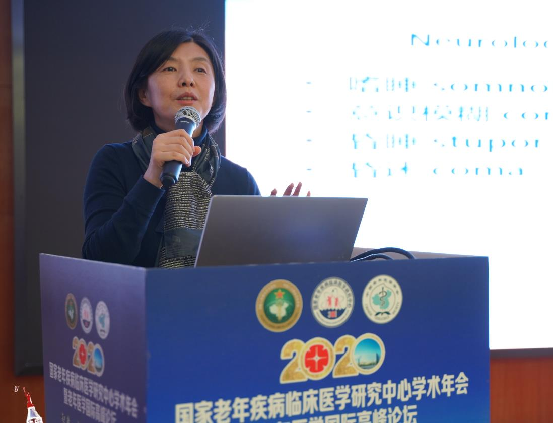
Li Juan, a second-level researcher at the Institute of Psychology of the Chinese Academy of Sciences and director of the Geriatric Psychological Research Center, gave a lecture entitled "Intervention Training for Geriatric Cognitive disorders", sharing several aspects of senile dementia, cognitive intervention, music therapy and exercise intervention. The experts, scholars and students present here unanimously expressed their great necessity, great interest and great prospect.
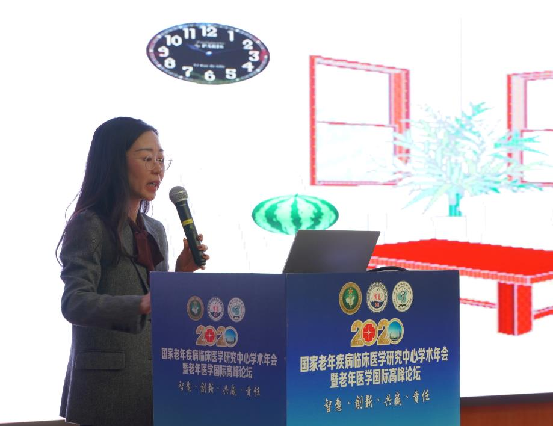 The lecture by Lu Jihui, director of the second Department of Psychiatry, Beijing Geriatric Hospital, was entitled "Comprehensive Assessment and multidisciplinary Management of dementia patients".
The lecture by Lu Jihui, director of the second Department of Psychiatry, Beijing Geriatric Hospital, was entitled "Comprehensive Assessment and multidisciplinary Management of dementia patients".
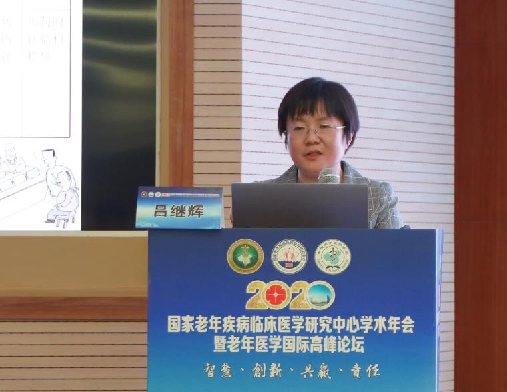
After the sharing, the conference entered the most exciting closing session - the second phase of the interdisciplinary team of cognitive disease geriatrician Management Improvement workshop (workshop). Prof. Liming Zhang, Prof. Xinyu Sun, Prof. Zhengzhen Wang, Prof. Leiming Luo and Prof. Yixin Hu joined the participants in the Cognitive Disease Interdisciplinary Team Geriatrician Management Enhancement workshop. Multidisciplinary experts have had a heated discussion on classic cases of elderly cognition. Many scholars actively asked questions, and the discussion experts also provided answers from different disciplines. The workshop promoted the communication among experts, and many scholars could learn more from the discussion of experts that could not be expressed in ordinary meetings. The final interaction of questions and answers also narrowed the distance between ordinary scholars and experts.
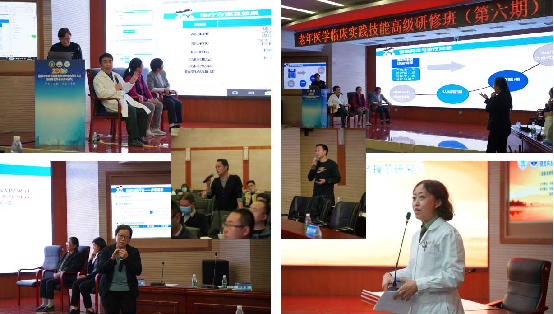
Throughout the workshop, the audience scholars learned a lot of practical methods, and the scholars expressed great benefits after the meeting. It is believed that more concrete and vivid further guidance can be given in the future primary treatment and care of elderly patients in hospitals.
On November 10, 2020, it was the third day of the Advanced Geriatric Clinical Practice Skills Training Class (the sixth session) and the training project of "Research on Multidisciplinary Outpatient Service Mode and Service Norms of Geriatric Medicine" held by Beijing Health Commission. The professor gave a wonderful lecture, and the online and offline students were enthusiastic about learning.
 The lecture topics are "Comorbidity Management Skills Enhancement from a geriatric perspective" and "Skills enhancement of geriatrics in hospice care".
The lecture topics are "Comorbidity Management Skills Enhancement from a geriatric perspective" and "Skills enhancement of geriatrics in hospice care".
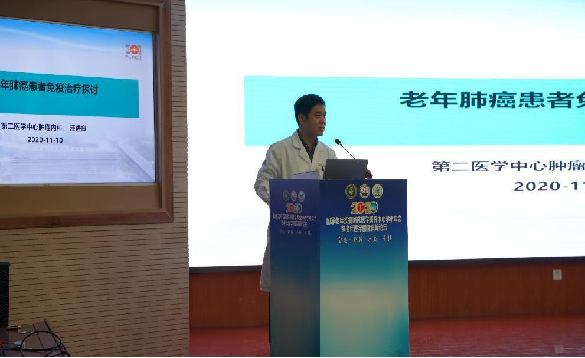 First of all, Wang Jinliang, director of the Neurology Department of the Second Medical Center of the PLA General Hospital, opened today's lecture, from the application of single immunosuppressant to the combination of immunosuppressant drugs, from experimental research to the real world, in-depth and comprehensive about the application and thinking of immunosuppressant in elderly patients with lung cancer.
First of all, Wang Jinliang, director of the Neurology Department of the Second Medical Center of the PLA General Hospital, opened today's lecture, from the application of single immunosuppressant to the combination of immunosuppressant drugs, from experimental research to the real world, in-depth and comprehensive about the application and thinking of immunosuppressant in elderly patients with lung cancer.
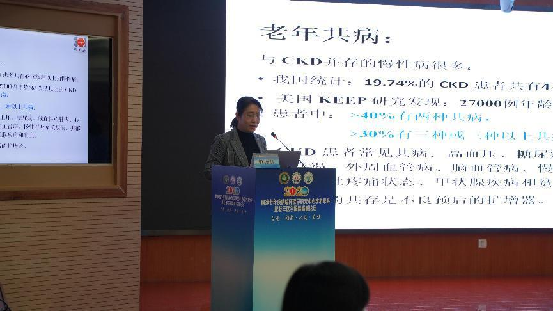 Zhao Jiahui, deputy director of the Nephrology Department of the Second Medical Center, introduced the latest progress and clinical prevention and treatment of renal insufficiency in elderly comorbidities, focusing on the influence of comorbidities and how to regulate blood pressure, blood sugar and nutritional treatment according to the characteristics of elderly people.
Zhao Jiahui, deputy director of the Nephrology Department of the Second Medical Center, introduced the latest progress and clinical prevention and treatment of renal insufficiency in elderly comorbidities, focusing on the influence of comorbidities and how to regulate blood pressure, blood sugar and nutritional treatment according to the characteristics of elderly people.
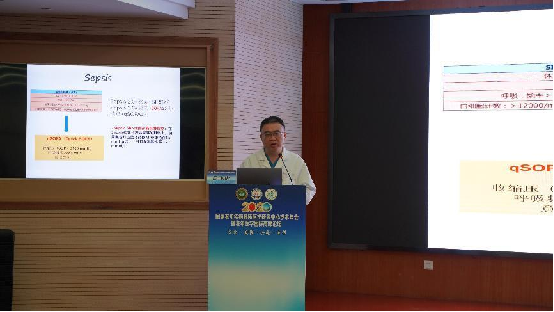 The lecture by Zhou Feihu, director of the Department of Critical Care Medicine of the First Medical Center of the PLA General Hospital, titled "Volume reactivity Assessment and Management of severe infection in the elderly", described how to volume resuscitation and the application of pressor drugs in elderly patients with severe illness, and pointed out the importance of critical ultrasound monitoring.
The lecture by Zhou Feihu, director of the Department of Critical Care Medicine of the First Medical Center of the PLA General Hospital, titled "Volume reactivity Assessment and Management of severe infection in the elderly", described how to volume resuscitation and the application of pressor drugs in elderly patients with severe illness, and pointed out the importance of critical ultrasound monitoring.
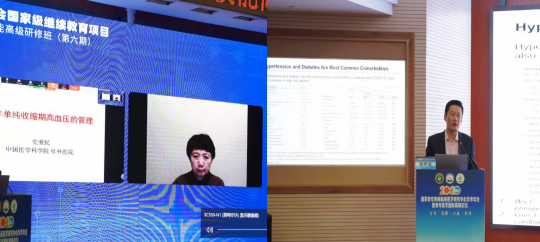 At the same time, the meeting invited Dang Aimin, director of the Department of Cardiology of Fuwai Hospital, Chinese Academy of Medical Sciences, and Zhang Yuqing, director of the two experts respectively told the "management of elderly simple systolic hypertension" and "the controversy and progress of elderly hypertension management during the novel coronavirus pneumonia epidemic", the content of the frontier, bringing new thinking.
At the same time, the meeting invited Dang Aimin, director of the Department of Cardiology of Fuwai Hospital, Chinese Academy of Medical Sciences, and Zhang Yuqing, director of the two experts respectively told the "management of elderly simple systolic hypertension" and "the controversy and progress of elderly hypertension management during the novel coronavirus pneumonia epidemic", the content of the frontier, bringing new thinking.
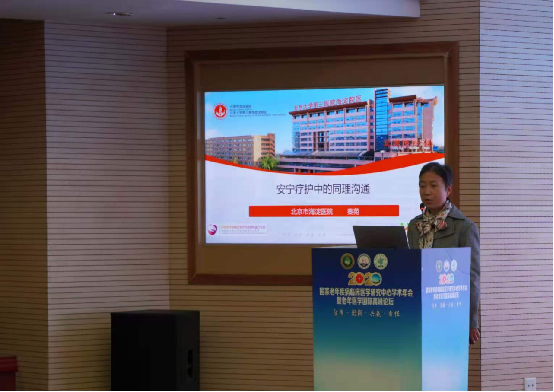 Dr. Qin Yuan, director of the Department of Oncology and Hematology of Beijing Haidian Hospital, is an expert in hospice care. Her lectures are vivid and emphasize that medicine is not only technology, but also profound humanistic care. It also shared the "sandwich" structure of empathetic response in clinical doctor-patient communication, as well as the American "SPIKE model" of how to inform patients of "bad news".
Dr. Qin Yuan, director of the Department of Oncology and Hematology of Beijing Haidian Hospital, is an expert in hospice care. Her lectures are vivid and emphasize that medicine is not only technology, but also profound humanistic care. It also shared the "sandwich" structure of empathetic response in clinical doctor-patient communication, as well as the American "SPIKE model" of how to inform patients of "bad news".
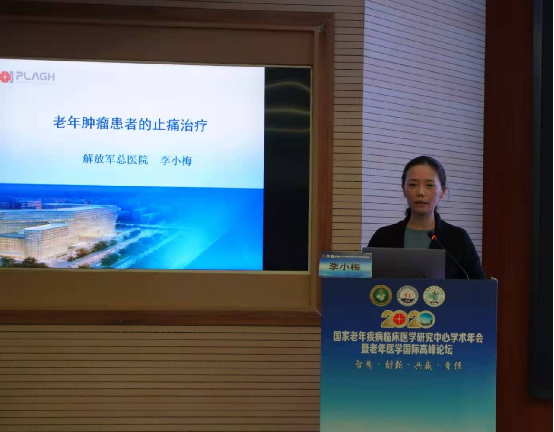 Li Xiaomei, director of the geriatric Medicine Department of the Second Medical Center of the PLA General Hospital, described the symptoms and causes of pain in the elderly, as well as the treatment model of ";screening - evaluation - treatment - reevaluation". From a vivid case sharing, it tells how to successfully treat an elderly pain patient through interdisciplinary team cooperation.
Li Xiaomei, director of the geriatric Medicine Department of the Second Medical Center of the PLA General Hospital, described the symptoms and causes of pain in the elderly, as well as the treatment model of ";screening - evaluation - treatment - reevaluation". From a vivid case sharing, it tells how to successfully treat an elderly pain patient through interdisciplinary team cooperation.
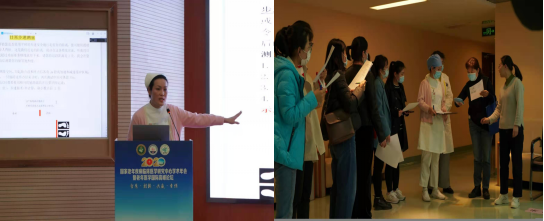 At the same time, the conference carried out skills training. Zuo Jing, a nurse from the Second Medical Center of the PLA General Hospital, explained the functional assessment methods of the elderly through theory and video.
At the same time, the conference carried out skills training. Zuo Jing, a nurse from the Second Medical Center of the PLA General Hospital, explained the functional assessment methods of the elderly through theory and video.
Finally, theory and skill assessment exams were conducted to check the students' learning during the three days.
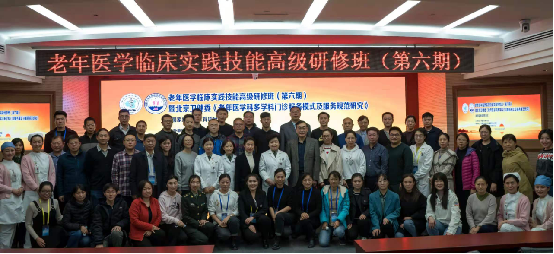 At the end of the meeting, Fan Li, President of the Chinese Geriatric Society, Chen Zheng, Vice President and Xu Xiaodong, Vice president and Secretary-General of the Chinese Geriatric Society, presented certificates of completion to the outstanding participants. A total of 7840 people participated in this training online and offline. The training aims to cultivate a comprehensive and complex team of geriatric doctors who meet social needs from multiple aspects such as theory, practice and scientific research, and contribute to healthy aging.
At the end of the meeting, Fan Li, President of the Chinese Geriatric Society, Chen Zheng, Vice President and Xu Xiaodong, Vice president and Secretary-General of the Chinese Geriatric Society, presented certificates of completion to the outstanding participants. A total of 7840 people participated in this training online and offline. The training aims to cultivate a comprehensive and complex team of geriatric doctors who meet social needs from multiple aspects such as theory, practice and scientific research, and contribute to healthy aging.
Prev
In 2025, the first "dual-teacher Class" for medical and elderly care integration and palliative care was launched - systematically cultivating talents in elderly health services to empower the high-quality development of the elderly health cause
Next
Clinical Skills Improvement Class for Geriatricians (Phase I) and Training Course on Comprehensive Assessment Technology and Application for the Elderly Held in Beijing

